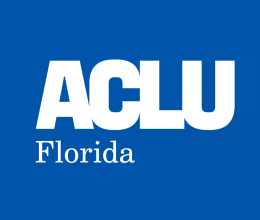
TALLAHASEE, Fla. — A federal court today ruled that the right to vote cannot be denied on account of wealth. Plaintiffs challenged a Florida law that creates wealth-based hurdles to voting and undermines Floridians’ overwhelming 2018 passage of Amendment 4, which restored voting rights to over a million people.
The American Civil Liberties Union, ACLU of Florida, NAACP Legal Defense and Educational Fund, and Brennan Center for Justice at NYU School of Law were in court October 7 and 8 seeking the preliminary injunction, which was granted in part today by U.S. District Judge Robert Hinkle.
The case was filed on behalf of 10 individual returning citizens, along with the League of Women Voters of Florida, the Florida State Conference of the NAACP, and the Orange County Branch of the NAACP.
The ruling applies to the 10 individual plaintiffs in this case, but the court held that the state must provide a quick and efficient process for others who are also unable to pay their legal financial obligations. Until Florida establishes this process, all other returning citizens who owe legal financial obligations are left waiting.
Floridians voted in 2018 to amend their state constitution to restore voting rights to people convicted of most felonies once they've completed their sentences. It was the single largest expansion of voting rights in the United States since the 26th Amendment lowered the voting age to 18 in 1971. In response, the Legislature passed a bill to limit Amendment 4’s reach, requiring people to repay any fines, fees, and restitution before their voting rights are restored.
“The court held that the right to vote cannot be denied based on a person’s inability to pay fines and fees. This ruling recognizes the gravity of elected officials trying to circumvent Amendment 4 to create voting roadblocks based on wealth,” said Julie Ebenstein, senior staff attorney with the ACLU’s Voting Rights Project.
“Today’s ruling is a huge win for our brave clients whose voting rights have been protected by the federal court, which blocked a Florida law that created wealth-based hurdles to voting and undermined Floridians’ overwhelming approval of Amendment 4,” said Micah Kubic, executive director of the ACLU of Florida. “The court’s decision is clear: the right to vote cannot be denied to anyone based on their inability to pay. The state must create a clear and unencumbered process that provides Florida’s returning citizens the ability to vote. This is an important win for our democracy.”
Leah Aden, deputy director of litigation, NAACP Legal Defense and Educational Fund, said, “This decision is a win for our individual clients and a critical step towards ensuring that the voting rights of other people with felony convictions are not trampled on by Florida officials. SB 7066 undermines the will of millions of voters, and undermines our democracy — unlawfully tying the ability to pay financial fees — a requirement disproportionately borne by Black people in Florida — to the right to participate in our political process. We will continue to fight for full relief for Florida voters who must not pay to vote.”
“Today the court upheld the fundamental American principle that the right to vote does not belong only to the wealthy,” said Sean Morales-Doyle, senior counsel in the Brennan Center’s Democracy Program. “It is now incumbent on the Florida Legislature to clean up their mess, quickly.”




